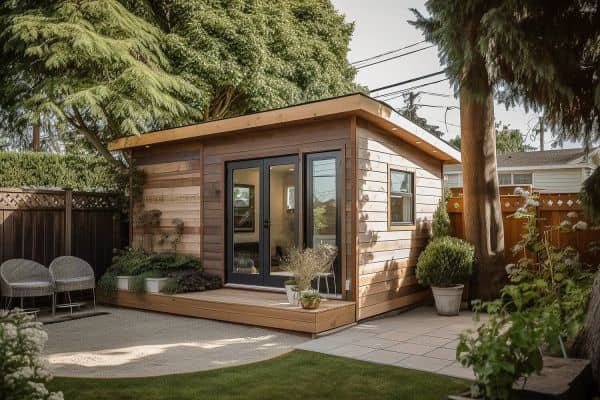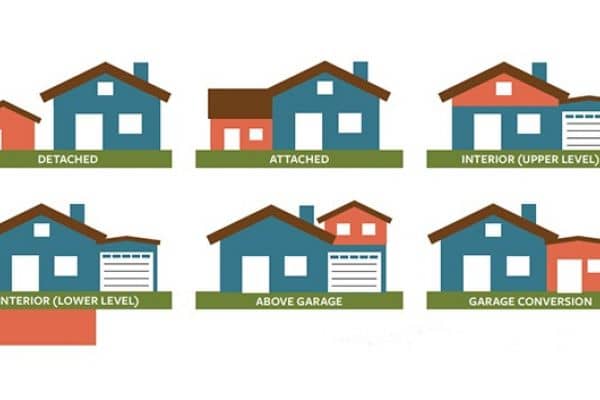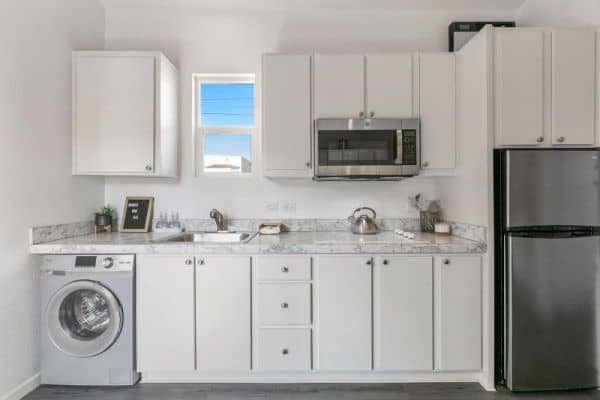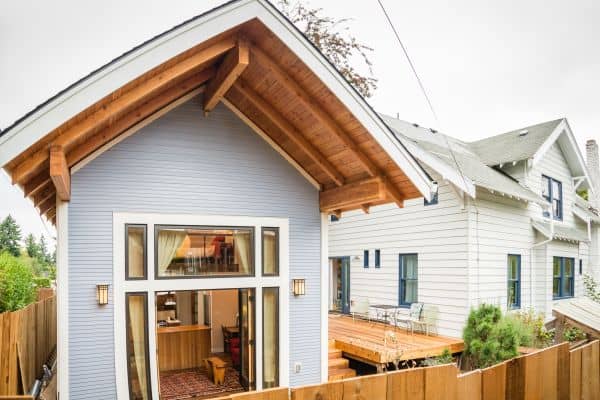Accessory Dwelling Unit (ADU) is a term for a secondary house or apartment that is legal and regulatory that shares the same building as a larger, primary home. The Accessory Dwelling Unit cannot be sold or brought separately.
What Is An Accessory Dwelling Unit (ADU)?
The US has different names for Accessory Dwelling Units (ADU) including accessory apartments, secondary suites, in-law or mother-in-law units, carriage houses, and granny flats. ADU buildings are often built to generate additional income through rent or to house a family member.
For example, if you or an elderly parent could live in a small unit they can create an Accessory Dwelling Unit from unwanted or unused property.

Pros and cons of Accessory Dwelling Unit (ADU)
| Pros of ADUs | Cons of ADUs |
| Accessory Dwelling Unit (ADU) helps to generate extra income. | An Accessory Dwelling Unit (ADU) takes up a lot of space which can also be used as storage and garages. |
| Accessory Dwelling Unit (ADU) helps to add value to the property where ADUs are created. | The Accessory Dwelling Unit (ADU) will require maintenance from time to time. |
| Accessory Dwelling Unit (ADU) adds a lot of space for garages and workshop | Accessory Dwelling Unit (ADU) may increase your property tax and utilities as it costs money to build with added monthly expenses. |
How Much Does an Accessory Dwelling Unit (ADU) Cost?
The cost of the Accessory Dwelling Unit (ADU) building depends on your design. The costs depend throughout the different states as the cost also depends on the materials that you are using or if the Accessory Dwelling Unit (ADU) will be attached or detached from the main house and the contractors. So the cost of building an Accessory Dwelling Unit (ADU) can be different through states, design, and materials.

Also don’t forget that the building of an Accessory Dwelling Unit (ADU) on your property can increase the homeowner’s tax bill which may eliminate a significant amount of your rental income which will be generated through the Accessory Dwelling Unit (ADU).
Does an Accessory Dwelling Unit (ADU) Add Value to Your Home?
Yes, Accessory Dwelling Unit (ADU) adds value to your property but the value of the Accessory Dwelling Unit (ADU) depends on the market or the state you are living in. You will be building a second building or attached building to the main house which an effectively add value to your property.
The accessory Dwelling Unit (ADU) not only helps in adding value but also helps the property owner to generate income through renting and can be a good source of income.
Does an Accessory Dwelling Unit (ADU) Require a Kitchen?
The need for the kitchen depends on where you live and what you wanna do with the Accessory Dwelling Unit (ADU). The Accessory Dwelling Unit (ADU) has different rules throughout the different states and local zones. So you can contact or consult with local housing and community development administration and fulfill the rules while making your Accessory Dwelling Unit (ADU).

The need for a kitchen in an Accessory Dwelling Unit (ADU) also mostly depends on state or local zone rules but it also depends on your design and the budget you want to use to make Accessory Dwelling Unit (ADU).
FAQs
Q. What are the requirements for an Accessory Dwelling Unit (ADU) in California?
The requirements for Accessory Dwelling Units (ADU) in California are they must have a separate entrance with a bathroom and the bathroom must include a toilet, sink, and shower.
Q. What is the best use of Accessory Dwelling Units (ADU)?
The use of Accessory Dwelling Units (ADU) can be different throughout the property owner’s perspective but you can use them to serve as rental units, house family members, or provide additional space for home offices or studios.
Q. Can I sell my Accessory Dwelling Units (ADU) in California?
Yes, you can sell your Accessory Dwelling Units (ADU) in California the law to sell Accessory Dwelling Units was approved on October 11, 2023, but it most fulfill the law requirement.
